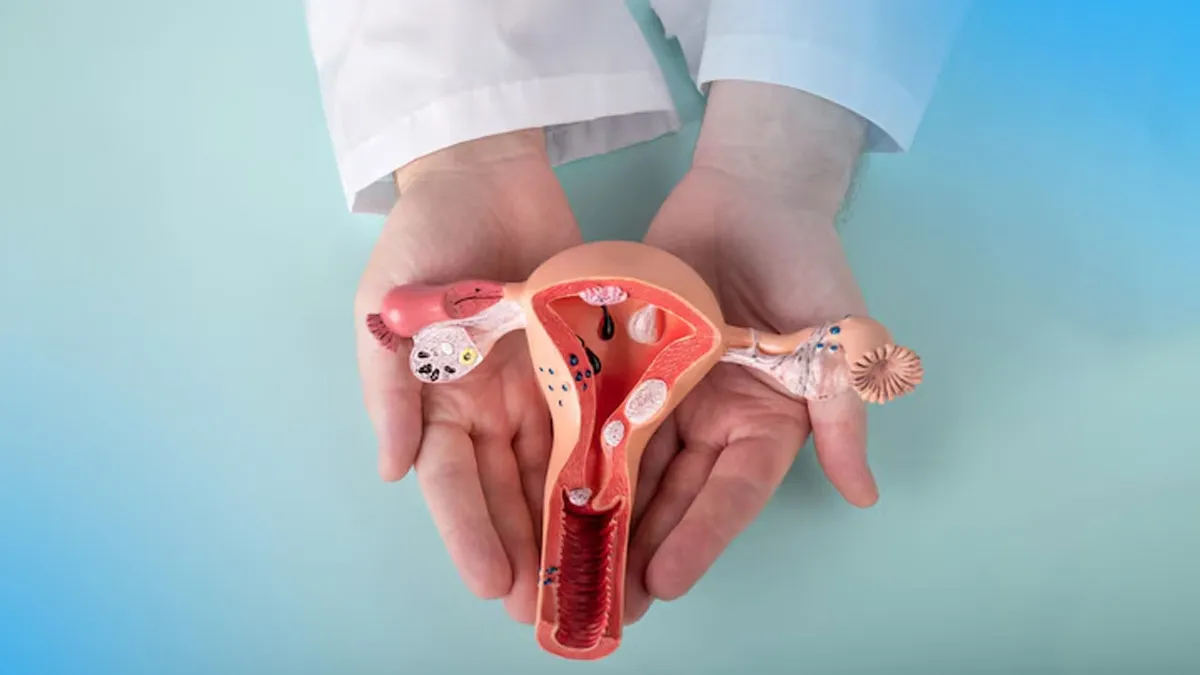
Most women have some level of discomfort in their menstrual cycle. Menstrual pain, or dysmenorrhea, varies from mildly annoying cramps to more severe aches in the lower abdomen, back, and thighs. For many, this discomfort is a bearable monthly hassle, usually eased by home remedies and over-the-counter pain medication. However, it's important to know when your period pain goes beyond the normal and indicates a possible underlying medical condition that needs to be treated by a doctor.
Table of Content:-
According to our expert, Dr Suma Varsha, IVF Specialist at Ferty9 Fertility Centre, Vijayawada, overlooking these warning signs can delay treatment and diagnosis, maybe even resulting in more severe complications. Here is everything you need to know through an expert’s lens.
How To Differentiate Between Normal from Worrisome Period Pain?
So, how do you tell normal period pain from something more worrisome? Although everyone's experience is different, some red flags warrant a call to see your doctor. “One important sign is an abrupt or gradual intensification of the severity of your pain. When you notice that your regular strategies for alleviating pain are no longer working, or when the pain is noticeably affecting your normal functioning, keeping you from going to work or school, or disturbing your sleep, then it is time to consult a professional,” Dr Varsha highlighted.

Also Read: Monsoon Skincare Guide: 7 Tips To Prevent Acne, Infections and Dullness
Changes in Period Pain Pattern and Flow
A change in the pattern of your period pain is another warning sign. If you normally have mild cramps that begin a day or two before your period and settle over the first day or two of bleeding, and now you find yourself experiencing intense pain that begins much sooner in your cycle or persists for your entire period, this may suggest an issue. In the same manner, when you get pains that are not specifically associated with your period, like pains in between cycles or pain during sex, bowel movements, or urination, these are symptoms that need to be checked.
Heavy or unexplained changes in your flow must also be brought up with a physician. Soaking through two or more pads or tampons for an hour for many hours in a row, having very large clots, or periods that last more than a week are possibly symptoms of something more serious.
Symptoms to Watch For
Coexisting symptoms with your period pain may also be significant indicators. Dr Varsha pointed out to be wary of the following symptoms:
- Severe nausea
- Vomiting
- Diarrhoea
- Dizziness
- Unbearable pelvic pain
- A fever that lasts throughout the period
If any of the following symptoms persist with your period pain, it needs to be assessed by a medical provider. These may be a warning sign of infection.

Possible Underlying Conditions
Dr Vasha also added that extreme or abnormal period cramps may be an indication of some underlying condition, such as endometriosis (a disorder where tissue that is like the uterine lining grows outside of the uterus), uterine fibroids (benign tumors in the uterus), ovarian cysts (fluid-filled sac on the ovaries), pelvic inflammatory disease (infection of the female reproductive organs), or adenomyosis (a condition where the endometrial tissue invades into the muscular wall of the uterus). “Early treatment and diagnosis of such conditions can prevent and control symptoms as well as avoid possible long-term sequelae, including infertility,” she concluded.
Bottomline
Don't wait to get medical advice if you are worried about your period pain. Your physician can give a complete checkup, which could involve a pelvic exam, laboratory tests, and imaging studies such as an ultrasound, to identify the reason behind your pain and suggest proper treatment steps. Taking proactive care of your health and getting unusual symptoms treated right away can really enhance your quality of life and overall health.
Also watch this video
Read Next
C-Section Vs Natural Birth: Which Poses A Higher Risk Of Urinary Incontinence Later In Life?
How we keep this article up to date:
We work with experts and keep a close eye on the latest in health and wellness. Whenever there is a new research or helpful information, we update our articles with accurate and useful advice.
Current Version